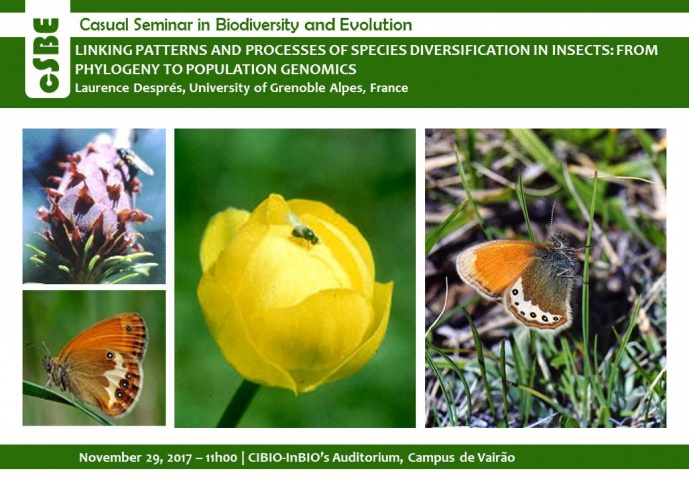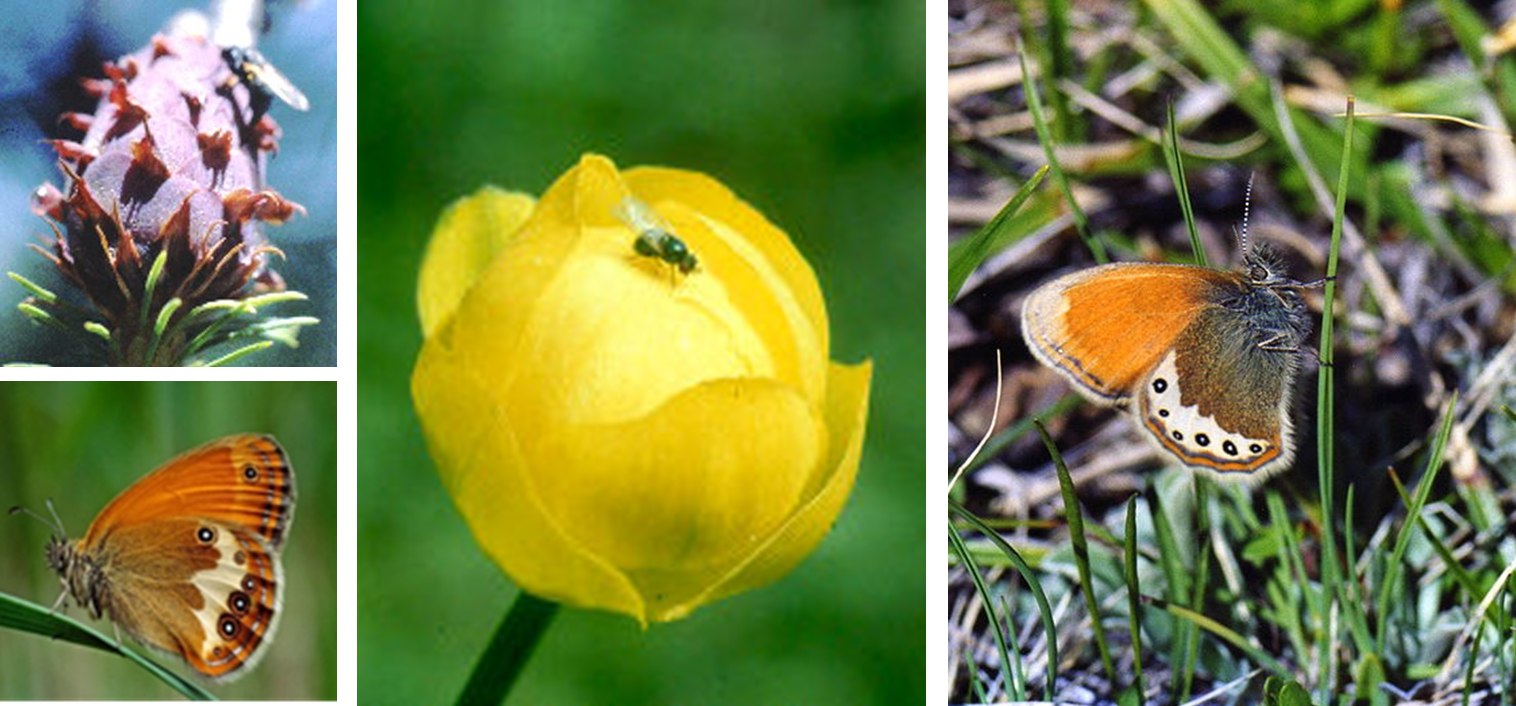LINKING PATTERNS AND PROCESSES OF SPECIES DIVERSIFICATION IN INSECTS: FROM PHYLOGENY TO POPULATION GENOMICS

CASUAL SEMINAR IN BIODIVERSITY AND EVOLUTION

Speciation with gene flow is more common than previously thought, but the mechanisms by which phenotypic divergence and reproductive isolation arise are poorly understood. Furthermore, the role of hybridization in species diversification and adaptive radiation is debated. In this talk I will first present phylogenetic patterns and ecological processes underlying species diversification in two plant-seed predator systems found in the Alps, the globeflower flies and the larch flies. In both systems, insect speciation is primarily driven by phenological shifts within host-plant, a neglected mode of sympatric speciation as compared to the well documented host-plant shift in phytophagous insect speciation. In the second part of the talk, I will highlight the role of hybridization in the diversification of Coenonympha butterflies along altitudinal gradients in the Alps (4 lineages), and discuss differential patterns of genomic introgression in contact zones. Interestingly, although the hybrid lineage (C. macromma) genome is 70% C. arcania and 30% C. gardetta, introgression rates were much higher between C. macromma and C. gardetta (2 alpine species) than between C. macromma and C. arcania (alpine and low-land species respectively), suggesting a key role for ecology in reproductive isolation.
Laurence Després is Professor at University Grenoble Alpes (UGA), where she teaches evolutionary ecology and phylogenetics, and is head of the Master Biodiversity, Ecology and Evolution. She holds a PhD from University of Montpellier. Her main research interests are in the evolutionary ecology of species interactions and coevolution. Most projects combine population genetics and phylogenetic analyses together with ecological, biochemical and behavioral studies to test hypotheses about host-parasite coevolutionary processes or adaptation to multiple constraints
[Host: José Melo-Ferreira, Conservation Genetics and Wildlife Management]